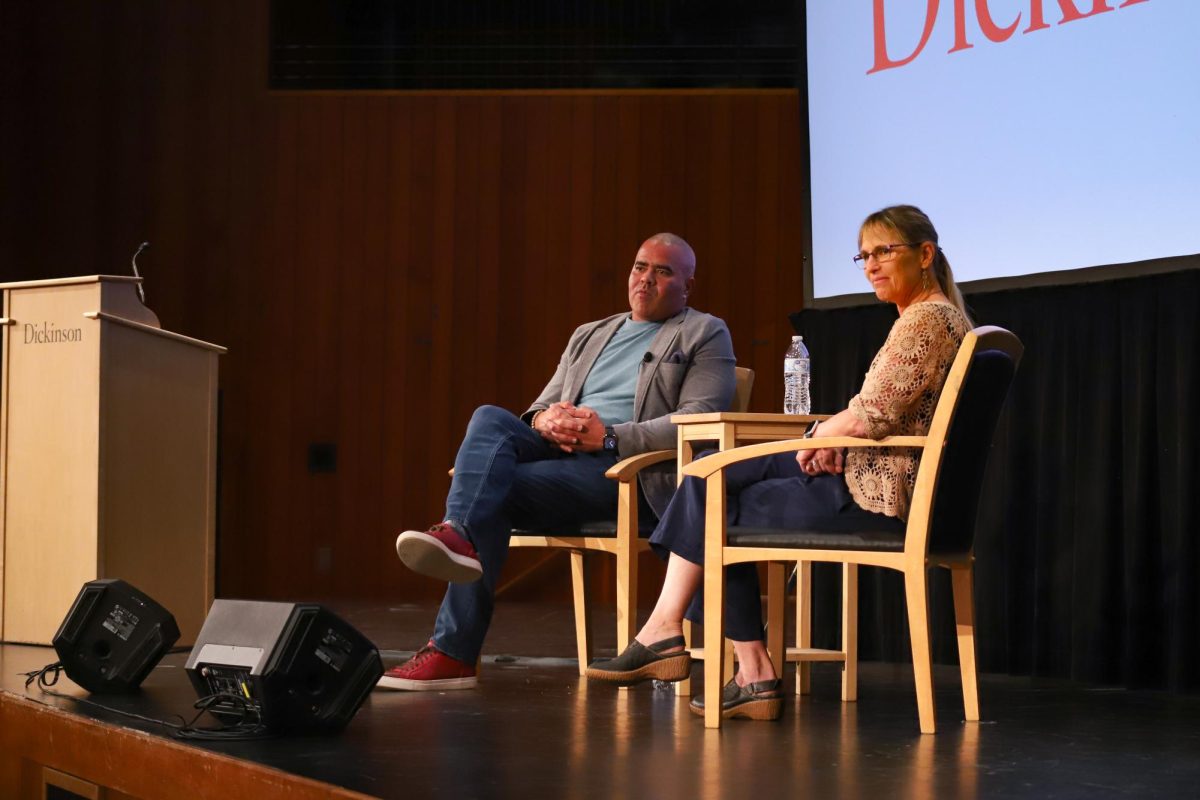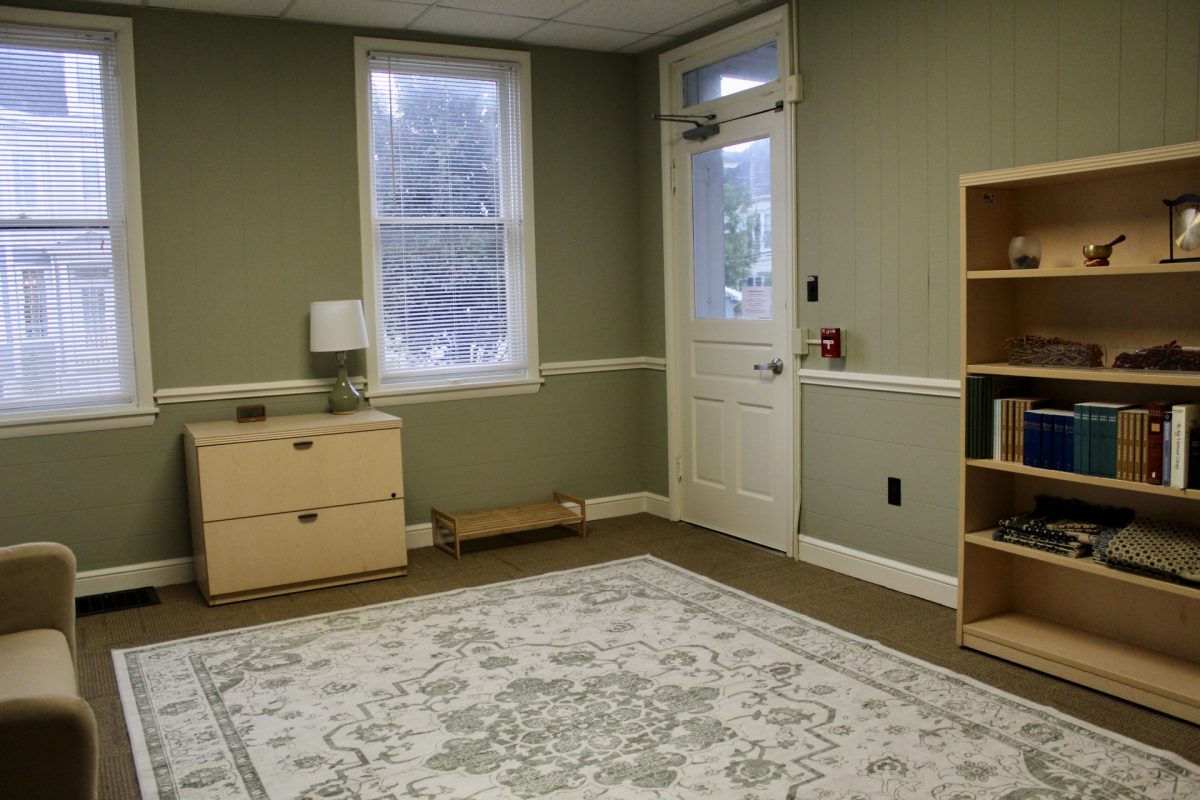Student Senate’s Poitras-Gleim Lecture invites speakers to explore topics “outside their known areas of expertise.” This year’s presenter was Tony and Emmy-nominated theater and television actor Christopher Jackson, most well known for his broadway roles in “Hamilton,” “In the Heights” and “The Lion King.” During his lecture, Jackson was asked to discuss a greater role than any he had on stage or screen: that of a father. Jackson’s 18-year-old son, CJ, has autism, and Jackson was asked to discuss his experience raising CJ and advocating for people with disabilities in the arts.
CJ was diagnosed with autism when he was two-years old. Jackson noted that “when CJ was diagnosed, it happened the same day that our off-Broadway dress rehearsal of “In the Heights” … the diagnosis came within five minutes of the start of that. Jackson mentioned the difficulty of CJ’s early years, a time with “mistakes and missteps” that resulted in a “whole lot of learning” for himself and his wife, fellow actress and singer Veronica Vazquez. However, he said that the perseverance he’d learned in his artistic career paid off in parenting and in building a better world for people with disabilities.
He noted times in which he has had to push toward creating more welcoming spaces, such as in his work with the advocacy organization KultureCity, which trains staff at places such as concert venues and aquariums on how to support those with sensory issues. While he “can’t see how” accommodations like sensory rooms would be an impediment, Jackson recognizes that even accommodations that are common today, like wheelchair ramps, were once nonexistent in public spaces. “When there’s a need, you want to see that need filled,” he said, pointing to the changes KultureCity has brought to performance spaces which include sensory rooms for individuals with light or sound sensitivities, sensory bags with other accommodations like fidget toys and noise-canceling headphones and staff trainings to ensure that individuals can get help if needed.
“Wherever you see that KultureCity logo,” he said, “be it a family with someone with special needs, be it a soldier or someone who suffered from PTSD, and wants to be able to engage with the world… it has a huge impact.”
Among Jackson’s projects has been his work to create Julia, the first “Sesame Street” muppet with autism. After spending several years writing for “Sesame Street,” Jackson was approached by Frank Campagna, a self-described “autism dad” and “Sesame Street” producer, and was asked to write a song introducing Julia to the show’s cast. The resulting character and song spread awareness and “opened conversations” between parents of autistic children and others who might not be aware of the need for inclusivity in numerous spaces. He describes it as a valuable interaction between his art and his personal life, in which he can use his passion to improve the world around him.
Jackson ended with a plea to those who downplay the importance of art in public places: “Everyone benefits from a society that makes room for art. It’s easy for me as an artist to conclude that art is important. [But] take away our art, all the different avenues that support the arts, and our society would be in peril very quickly.”












